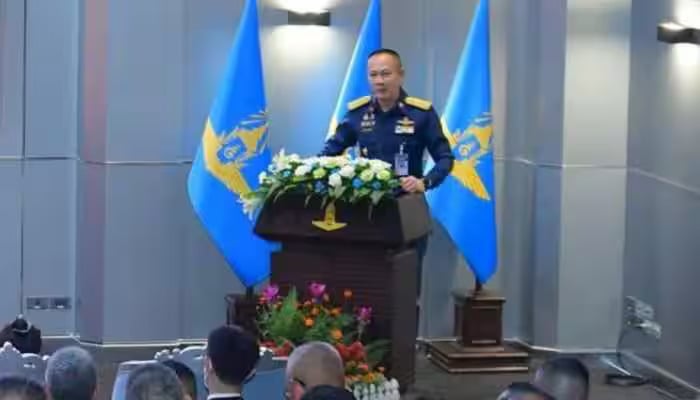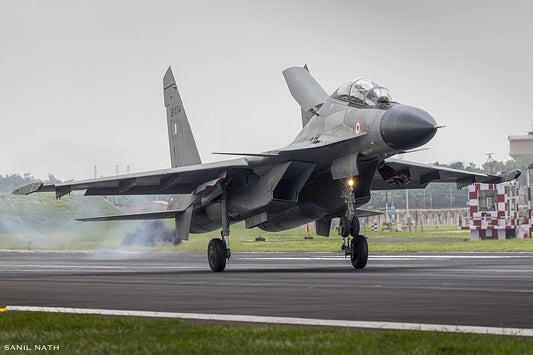Royal Thai Air Force Commends India's Precision Strikes on Pakistan, Highlights Air Defence Failures

The Royal Thai Air Force (RTAF) has lauded the Indian Air Force (IAF) for its precision strikes during the May 2025 conflict with Pakistan, citing it as a benchmark in modern air warfare. At a strategic conference in Bangkok led by the RTAF, Air Marshal Sommai Leelitham, Deputy Chief of Air Staff (Intelligence), highlighted the shortcomings of Pakistan's air defenses while praising India's tactical advancements and precise operations.
The conflict erupted after a terrorist attack in Pahalgam, Jammu and Kashmir, on April 22, which resulted in the deaths of 26 civilians. In response, India launched Operation Sindoor on May 7, aimed at high-value targets in Pakistan and Pakistan-occupied Jammu and Kashmir. The operation targeted militant infrastructure of groups like Jaish-e-Mohammed and Lashkar-e-Taiba through coordinated missile and air strikes.
For the first time since the 1971 war, India used frontline Rafale jets, BrahMos cruise missiles, and Israeli-origin loitering munitions to strike targets across the international border. On May 8 and 9, the IAF further targeted Pakistani air defense systems, including radars and command centers near Lahore and other strategic areas. Indian Sukhoi Su-30 MKIs, equipped with precision munitions, executed deep strikes that inflicted significant damage on Pakistani Air Force installations.
Although Pakistan claimed to have downed Indian aircraft, India's losses were minimal. This was attributed to real-time tactical adjustments, enhanced inter-service coordination, and effective satellite surveillance. Indian officials released post-strike satellite images revealing the extent of destruction at the targeted sites, confirming the mission's success.
Air Marshal Leelitham noted that the IAF's capability to perform multiple successful sorties without confirmed aircraft losses indicated a "clear collapse" of Pakistan's integrated air defense and a significant shift in India's air combat strategy.
The four-day conflict concluded with a ceasefire on May 10, after Pakistan's Director General of Military Operations reportedly sought an end to hostilities from his Indian counterpart. Analysts worldwide recognized India's operational proficiency and strategic restraint during the brief conflict.
Operation Sindoor has since become a focal point for military analysis and air forces throughout Asia. The Thai Air Force's acknowledgment of India's success underscores the expanding influence of Indian military strategy and the evolving dynamics of regional deterrence.
This conflict represents a pivotal moment for the Indian Air Force, establishing a new standard for cross-border precision engagement while reinforcing India's policy of measured yet decisive responses to terrorism.



















